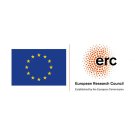INSTITUTIONS" How Do Values Influence the Functioning of Institutions and the Effects of Policies?"

P.I. prof. Guido Tabellini
Abstract
Many recent contributions by economists have stressed the importance of culture in explaining economic and institutional outcomes. Taking this literature as a point of departure, we study three questions.
First, how do values and beliefs influence the functioning of government institutions? We combine recent insights from political economics with the idea that civic values matter through citizens’ political participation, such as voters’ behavior and “voice” activities. Our goal is to lay the foundations for an economic theory of clientelism. We then study empirically voters with different cultural traditions react to news of politicians’ dishonesty; and how alternative political institutions influence the selection of politicians depending on the cultural environment.
Second, what can be done to promote economic development and improve the functioning of government institutions in a society with lack of social capital and poor values? We study empirically two important policy tools. The first is transfers to poor localities from higher levels of governments. If civic values are deficient, transfers might reinforce clientelism. We test various possible channels for such adverse effects. Second, exploiting a “natural “experiment, we study the effects of decentralizing the selection of university professors.
Third, what are the main mechanisms of cultural transmission, and how do they interact with the external environment? We explore the role of schools, families and peers in the formation of values and beliefs, using a unique feature of the large PISA surveys. Schools are a main vehicles of cultural transmission. They are also a public service with a complex organization. We study how values and beliefs, the organization of schools and citizens’ voice interact with each other.
Much of our empirical analysis focuses on Italian regions and municipalities. Although these questions cut across many disciplines, we take an economic approach.
Working Papers
- Academic Dynasties, by Roberto Perotti (with Ruben Durante and Giovanna Labartino)
- Public Spending and Illegal Behavior: a Natural Experiment, by Roberto Perotti and Guido Tabellini (with Caterina Gennaioli and Massimiliano Onorato)
- Tax Cuts vs. Governement Spending: Welfare at the Zero Lower Bound, by Roberto Perotti (with Florin Bilbiie and Tommaso Monacelli)
- Moderating Political Extremism: Single Round vs. Runoff Elections under Plurality Rule, by Guido Tabellini and Tommaso Nannicini (with Massimo Bordignon)
- Men Vote in Mars, Women Vote in Venus, by Tommaso Nannicini (with Vincenzo Galasso)
- How do Voters Respond to Information? Evidence from a Randomized Campaign, by Tommaso Nannicini (with Chad Kendall and Francesco Trebbi)
- Policy Respponses to Fiscal Restraints: A Difference-in-Discontinuities Design, by Tommaso Nannicini (with Veronica Grembi and Ugo Troiano)
- The Clan and the City: Sustaining Cooperation in China and Europe, by Guido Tabellini (with Avner Greif)
- Emotions and Political Unrest, by Guido Tabellini (with Francesco Passarelli)
Published Articles
- The Political Resource Curse, by Tommaso Nannicini, Roberto Perotti and Guido Tabellini, published in the American Economic Review
- The Austerity Myth: Gain Without Pain?, by Roberto Perotti, published in the edited volume Fiscal Policy After the Financial Crisis
- Tying your Enemy's Hands in Close Races: The Politics of Federal Transfers in Brazil, by Tommaso Nannicini (with Fernanda Brollo), published in the American Political Science Review
- Social Capital and Political Accountability, by Tommaso Nannicini and Guido Tabellini (with Andrea Stella and Ugo Troiano), published in the American Economic Journal: Economic Policy
- Competing on Good Politicians, by Tommaso Nannicini (with Vincenzo Galasso), published in the American Political Science Review
- Do Better Paid Politicians Perform Better?, by Tommaso Nannicini (with Stefano Gagliarducci), published in the Journal of the European Economic Association

This project has received funding from the European Research Council (ERC) under the European Union’s Horizon 2020 research and innovation programme.